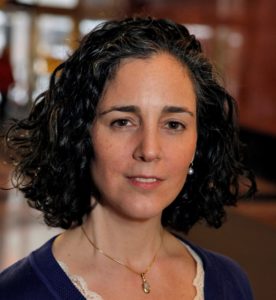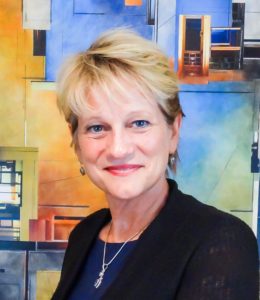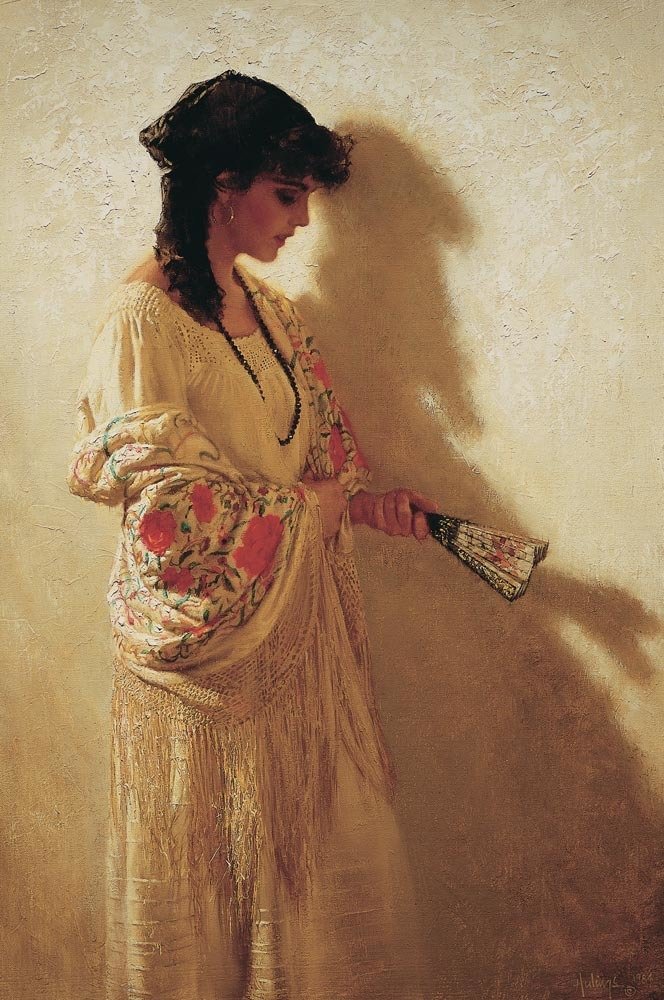Next week is the week so many have been waiting for: a gathering of some of today’s master figure and portrait painters who will share their techniques and advice throughout the 2nd Annual Figurative Art Convention & Expo. Among the individuals and groups present, the Clark Hulings Fund (CHF) will be there to address the business side of art. The following is our exclusive Q&A about what the CHF is doing to empower artists.
Cherie Dawn Haas: What’s a common question you hear about your organization?
Elizabeth Hulings: Since the Clark Hulings Fund’s mission is “Equipping visual artists to be self-sustaining entrepreneurs,” we are often asked how do you do that? In general, we provide artists with the same kind of hands-on support that business incubator programs offer to entrepreneurs in the tech world and other fields. We balance this with self-directed learning, make it interactive, incorporate existing expertise, and encourage social learning in small groups—all key components in effective adult education.
We are known for our Art-Business Accelerator Fellowship, for which we select 20 artists from across the US and provide them with comprehensive business education and training, bolstered by structured accountability to us, their peers, and themselves that ensures they actively use the tools we give them. For the wider public of artists, we offer our recently launched Digital Learning Portal through which we provide education in formats that working artists already consume, from expert columns and how-to videos all the way to structured Accelerator learning modules. We also offer regional Art Business conferences, and we have two of those coming up (Ft. Lauderdale in February, and Washington DC in March). In addition, we partner with other arts organizations to provide entrepreneurial support at events like FACE, ArtExpo New York, and the StARTup Art Fair. Finally, we offer our podcast series, The Thriving Artist, which features professional artists and other industry experts discussing the business of art.

CDH: Why did you create The Clark Hulings Fund?
Elizabeth Hulings: My mother and I felt compelled to answer a need that we saw woefully unaddressed — one that my father and I discussed at length, over the course of many years: Art is a business, artists are small business owners, and yet they are not usually taught how to function in the marketplace. Their consequent lack of business knowledge increases insecurity and paves the way for exploitation and failure. We founded CHF to overcome this, to empower artists to follow in Clark Hulings’ footsteps so that the world can enjoy their artwork, as we do his.
CHF provides training, tools, and management. CHF was founded on an investor-based, free-market approach: instead of dropping coins into the donation jars of starving artists, we help them dispense with the jars altogether by developing and maintaining sustainable enterprises around the creation of their art.
CDH: What’s a challenge artists face, and how can they overcome it?
Elizabeth Hulings: Visual artists face challenge after challenge on the path to economic success. Funding sources are drying up even as upfront expenses (e.g., studio spaces, materials, etc.) are increasing. Art schools rarely teach business and organizational skills, yet artists require this expertise to protect themselves and to successfully navigate one of our most opaque and least regulated industries. But one of the biggest threats artists face comes from a most unexpected source: artists themselves. Before artists can prosper, they must first believe that it is not only okay but in fact necessary to treat their work as a business.
Many artists resist this simple truth because they are taught to see it as a debasement of their artistic purity. That is nonsense. If you plan to make a living from your art — to pay your bills, sell your work, and have the time and resources to create more work and grow as an artist — you must accept the fact that you are running a business, and that you are the CEO of the enterprise.

Carolyn Edlund: One of the most common challenges artists have is selling their art. All that goes into sales can be overwhelming, and it helps to break that down into smaller pieces. Artists should have an understanding of the concept behind their work, and be able to explain what they do in the form of an artist story. Stories are memorable, and they help the artist to connect emotionally with their potential collectors. Owning a piece of art is more than owning a “thing” – it is a piece of the artist’s creativity and thus is often cherished. A good story becomes part of the experience of shopping for, buying, and owning art.
CDH: Who is your biggest inspiration?
Elizabeth Hulings: Our biggest inspiration is our namesake, American realist painter and astute businessperson, Clark Hulings (1922-2011). After building a career as a commercial illustrator, Hulings made the transition to fine art at the age of 40, financing the move with his own savings and applying his considerable business experience to grow his art practice. While he continued to hone his craft well into his 80s, he also knew that to be successful, he had to think like an entrepreneur and seize opportunities to grow his business. The nine practice areas in CHF’s Digital Learning Portal are based on our analysis of what had the biggest impact on Hulings’ career and those of his peers.
CDH: Tell our readers a little about what you are doing at FACE.
Elizabeth Hulings: In her interactive session, Elizabeth Hulings will show how the rapid and dramatic changes that have shaken the art market to its foundation work can work in artists’ favor. She’ll help them identify a viable business objective that aligns with who they are as artists and create a dynamic blueprint that will let them reach their artistic and entrepreneurial goals, and ensure they are communicating their message to maximum positive effect.
Carolyn Edlund’s talk will instruct artists on how to create a cohesive portfolio with a signature style and concept that projects professionalism to get noticed and gain credibility. Her presentation will cover best practices for selecting images to build a solid portfolio, the different types of visual and written materials needed and their purposes. She will also address how portfolios have changed in the Internet age, and how artists can best take advantage of these changes.
Carolyn Edlund: Artists should have the best portfolio presentation possible, to convey credibility, authority, and professionalism. I’m giving a talk called “Rock Your Portfolio” at the FACE Convention that not only stresses the importance of excellent photography and presentation but describes different types of photographs that help artists in a number of ways. Having an arsenal of an excellent portfolio and related shots enhance the collector experience, shares visual information, and can be a perfect segue into connecting with the press.
CDH: What are you looking forward to the most about FACE?
Elizabeth Hulings: I’m excited to participate in FACE for a couple of reasons. Because my father was a realist painter, this is pretty much like going home for me — lots of friends and beautiful work to enjoy. I’m also thrilled to have the opportunity to introduce so many more artists to CHF and offer some of our core ideas. Our mission is to support as many visual artists as possible — to help them thrive economically, and build networks and community. FACE is a terrific place for us to do both of those things. We look to collaborate whenever and wherever we can. Getting to collaborate with Eric Rhoads and Peter Trippi, and this whole group is especially nice, though, and the potential for this partnership is tremendous.










This is a wonderful effort on the part of ms.hulings to help artists in the memory of her father.most
Artists are woefully inadequate in the area of the business side of art(a group I must include myself)please keep me informed about future activities and events.sincerely,John grieco